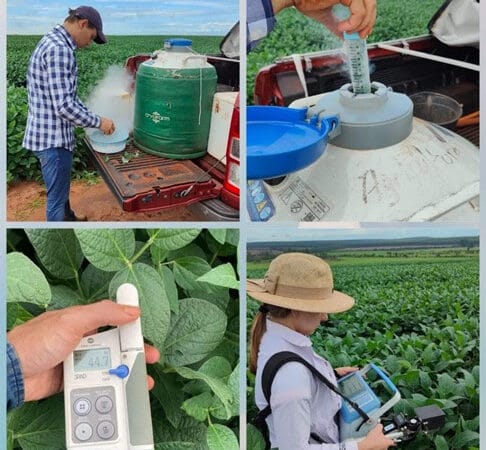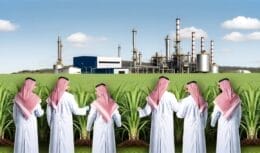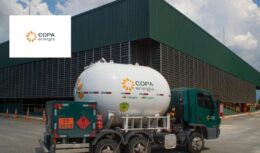
How biotechnological innovation can be the key to overcoming climate adversities in agriculture
In the constant search for solutions that face climate adversities, research conducted by the respected Prof. Dr. Carlos Crusciol from Unesp Botucatu, together with a highly qualified team, brought to light the transformative power of Microgeo® biotechnology. The focus? Increase soybean resilience and productivity in times of climate challenges.
Climate impact and soy’s struggle
Agricultural Engineer Me. Tatiani Galeriani, a member of the research team, showed that the 2022/2023 harvest had a different climate scenario: abundant rain, but a notable reduction in the quality of sunlight, due to high cloudiness. Such a configuration has led to a challenging limitation in the photosynthesis of soybean plants. In the face of this adversity, the Microgeo® biotechnology stood out as a valuable solution.
Promising results with biotechnology
Biotechnological intervention generated significant changes. An increase in soil enzymatic activities, an increase in the volume and dry mass of nodules on soybean roots and an optimized absorption of essential nutrients such as nitrogen, phosphorus, potassium and zinc were observed.
Surprisingly, soybeans subjected to biotechnology experienced a 1,1°C drop in leaf temperature. This translated into more efficient processes, such as a more rational use of water. Despite the intense cloudiness, the plants showed an increase in the production of photosynthetic pigments, improving the efficiency of photosynthesis and, consequently, the assimilation of CO2 – a key point for sustainable agricultural practices and aligned with ESG practices. The numbers illustrate the success: an impressive average gain of 6 bags per hectare.
Galeriani pointed out: “The benefits of biotechnology are clear. Plants grown in soil enriched by Microgeo® biotechnology boasted markedly improved nutrition, reflected in notable advances in pigment production and the efficiency of photosynthesis.”
The way forward for conscious producers
Adopt Biological Management in soybean plantations, having the Microgeo® biotechnology as standard, it's proving to be not just a smart choice, but an essential one. This research signals substantial progress in the sphere of agriculture, providing tangible solutions to the unforeseen climate events that producers face. The study reinforces the urgency of investing in innovations and research to raise agricultural standards, ensuring environmental sustainability and more robust financial returns for farmers.
Source: Alfapress Comunicações – Mariana Cremasco











